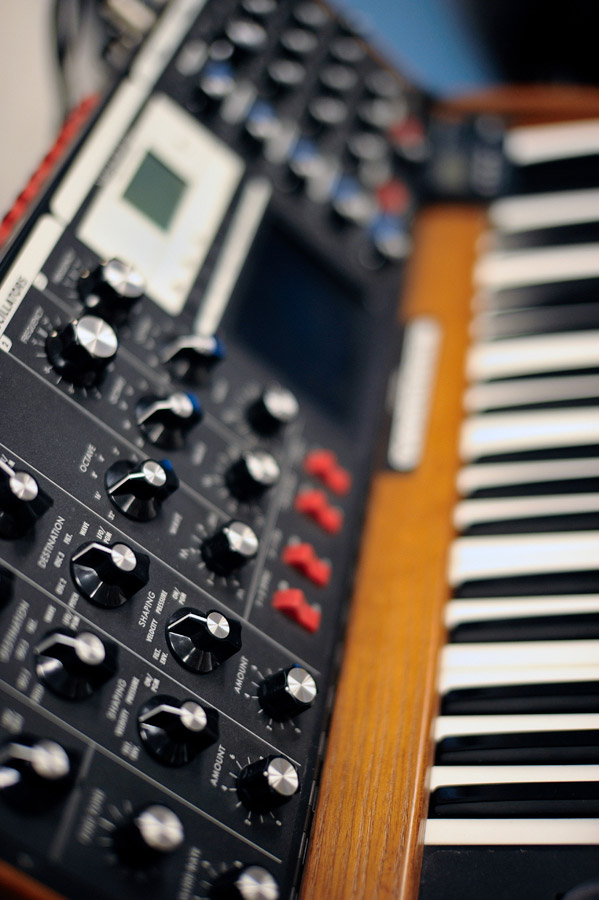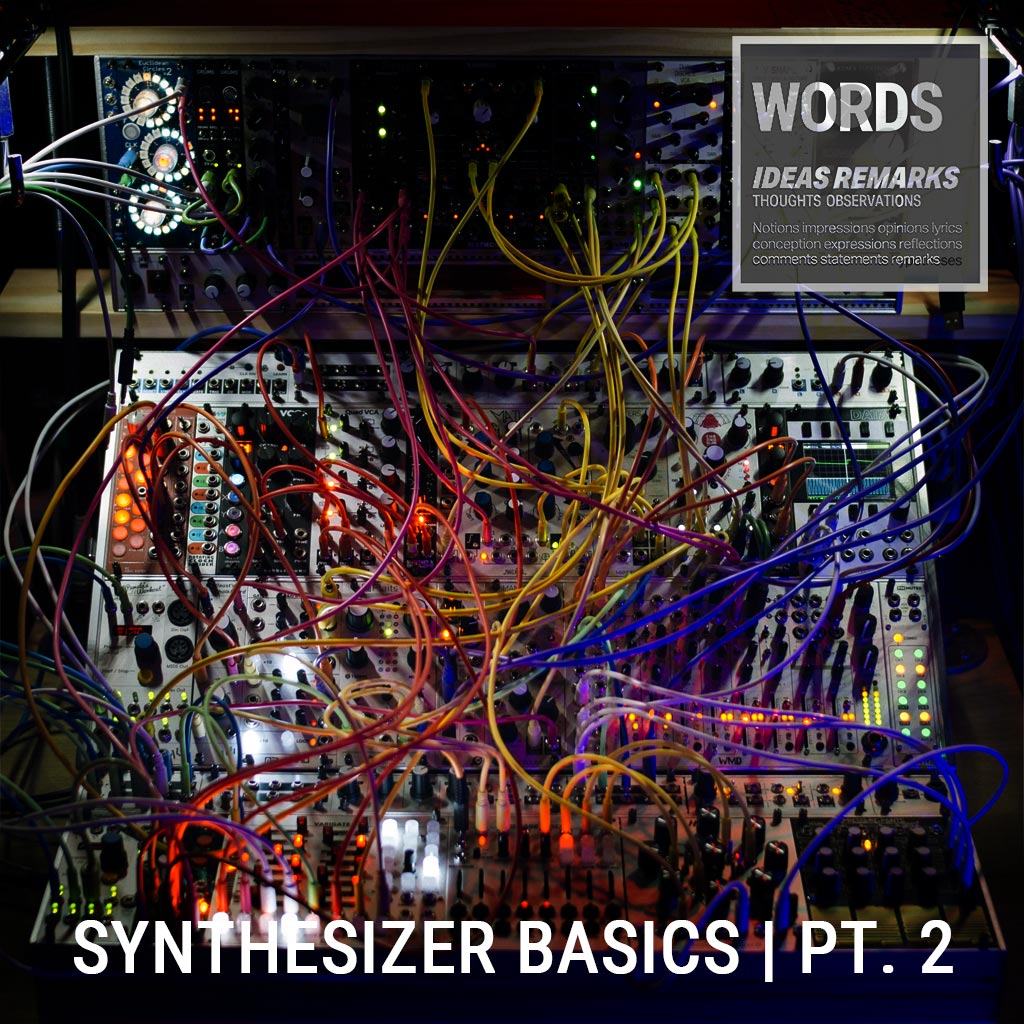Analog Vs. Digital - What's that all about?
This is part two of an unnumbered series of addressing the two categories of synthesizers: Analog and Digital.
In 2002 I bought my first synthesizer, the Moog Voyager Performer (see the adjacent image). That one purchase fundamentally changed my understanding of music and how it's made.
Bob Moog (pronounced like "vogue" with an M, not "moo" with a G at the end), who is considered to be the grandfather of contemporary synthesizers, unveiled his very first production synthesizer on October, 14, 1964. That first synth was 100% analog - digital wasn't a thing for musical instruments in the '60's... The 45th anniversary of the first Moog synthesizer is upon us!

Understanding the basic differences between analog and digital synthesis:
Analog synthesizers use larger electronic circuits, transitors, resistors, potentiometers, and a bunch of other geeky sounding electronic bits to make and shape sound. In the analog synth world, there's no software involved in the foundational sculpting of the noises that spew out when you press keys, twist knobs, or move cables around.
By contrast, physical digital synthesizers (not the ones you can play in garage band or other computer software) use analog parts to control the software and computer inside the keyboard to make sound.
Like everything there are two of, both formats, analog and digital, have advantages, disadvantages, and quirks that are unique to each:
analog Vs digital synthesis: The Pros and cons
analog Pros
2) Many options for shaping sound are presented on the front of the keyboard making it easy to change sound on the fly. This also has the benefit of connecting the player with the instrument and sounds they produce. Having a physical and tactile control panel makes for a more organic, quasi-symbiotic experience that analog enthusiasts and pros hold dear
3) They are typically substantial and are built of high quality components
4) Analog studio and sound making equipment in general tends to retain much higher value than digital gear, but....
digital PROS
2) They're typically lighter, cheaper, and more portable than their analog counterparts
3) These don't require normal oil-change-like service to function optimally
4) Digital synths typically offer a massive array of sound shaping capabilities (however, this is one facet that could/should also be placed in the cons category)
analog CONS
digital CONS
2) Anaolog synthesizers can be temperamental and need to be "warmed up" (powered on) before becoming stable. This is to say that notes played might be slightly out of tune until the synth has been warmed up for 5-10 minutes. Some older analog synths can take an hour or more before they become stable! [link 2]3) Like the cars we drive, synths require occasional service to operate at peak performance
2) Digital is often described as sounding "cold." Though this designation is subjective, the actual science behind how digitally produced sound works with our ears and auditory cortexes does provide a number of clues as to why people would prefer the sound of analog over digital
3) The cheaper ones feel cheap, and even some of the more/most expensive ones feel like toys. Cheap toys tend to break very easily.
WHY WOULD I _____
A common question people ask is some variation of, "Why in the world would you choose a fancy electronic music thingy that only makes one sound at a time?" The answer to this question is totally subjective - like answering the question, "what makes an apple better than an orange?"
This is discussed in the next section: SYNTHESIZER BASICS | PART 3: MONOPHONY & POLYPHONY.
